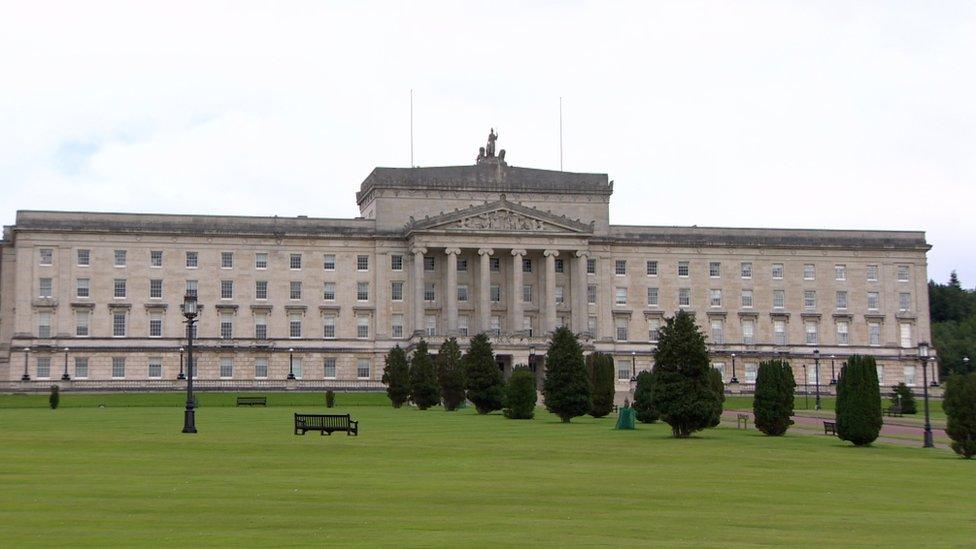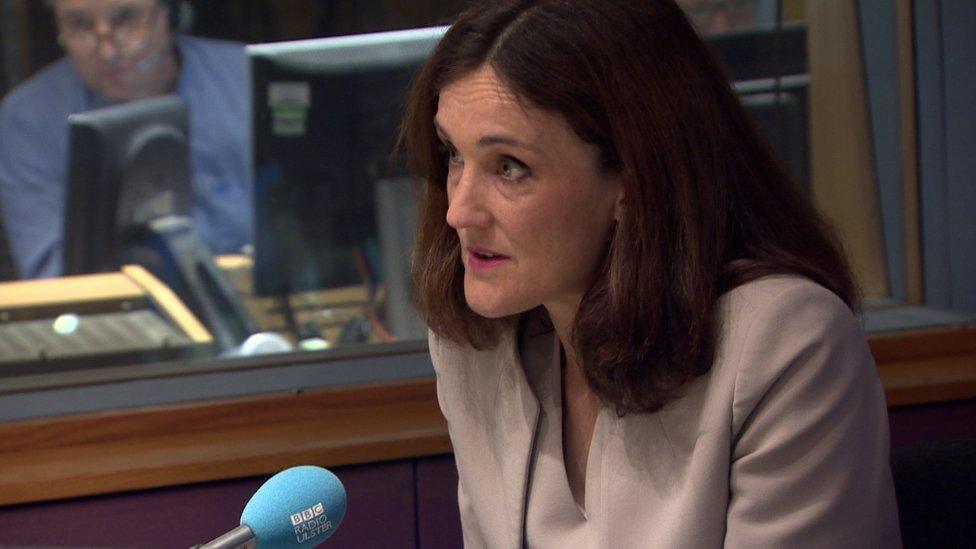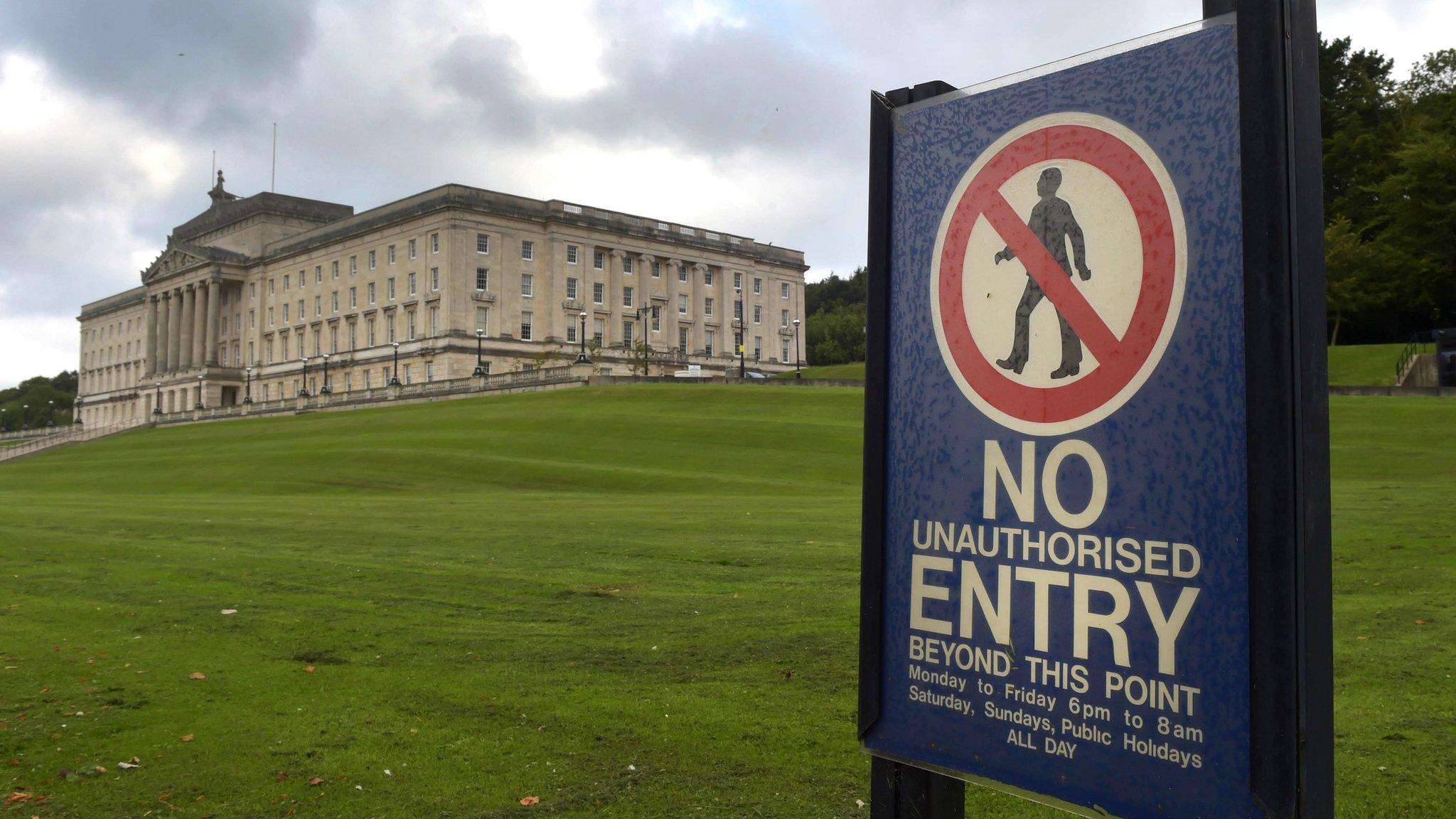Stormont crisis: Cross-party talks move into second week
- Published

Theresa Villiers said he second week of talks would begin with paramilitary groups on the agenda
Talks between Northern Ireland's five main political parties have moved into a second week, with the focus on paramilitary groups.
Discussions began last week in a bid to resolve the political row at Stormont.
The crisis was triggered when police said they believed IRA members had been involved in the murder of a former IRA man in Belfast last month.
Northern Ireland Secretary Theresa Villiers said finding resolution in the negotiations would be "very difficult".
But she added that the parties had "established a sound basis on which to take forward the discussions with greater intensity" this week.
Legacy
She said the "impact of paramilitary organisations" was the matter on the agenda for Monday's round of talks.
That is one of the primary issues on the table during the cross-party negotiations.

Cross-party talks began last week in an attempt to resolve the crisis at Stormont
Stormont's finances - a major factor is the implementation of welfare reform - is the other main matter on which the parties are trying to find resolution.
Ms Villiers had said the opening week of talks had been "useful and intensive" and that she was encouraged that the parties had shown a commitment to dealing with the impact and legacy of paramilitary activity.
In August, police said they believed IRA members had played a part in the murder of Kevin McGuigan Sr.
Resigning
Chief Constable George Hamilton said the IRA was still in existence, but added that the organisation was not engaged in terrorism.
The claims led to a breakdown in trust between Sinn Féin and unionist parties.
The Ulster Unionists withdrew from Northern Ireland's ruling executive, with three Democratic Unionist Party (DUP) ministers also later resigning, and DUP leader Peter Robinson stepping aside as first minister.
Unionists agreed to join the talks when the government ordered an independent review of paramilitary groups in Northern Ireland earlier this month.
- Published24 September 2015

- Published21 September 2015

- Published13 November 2015
